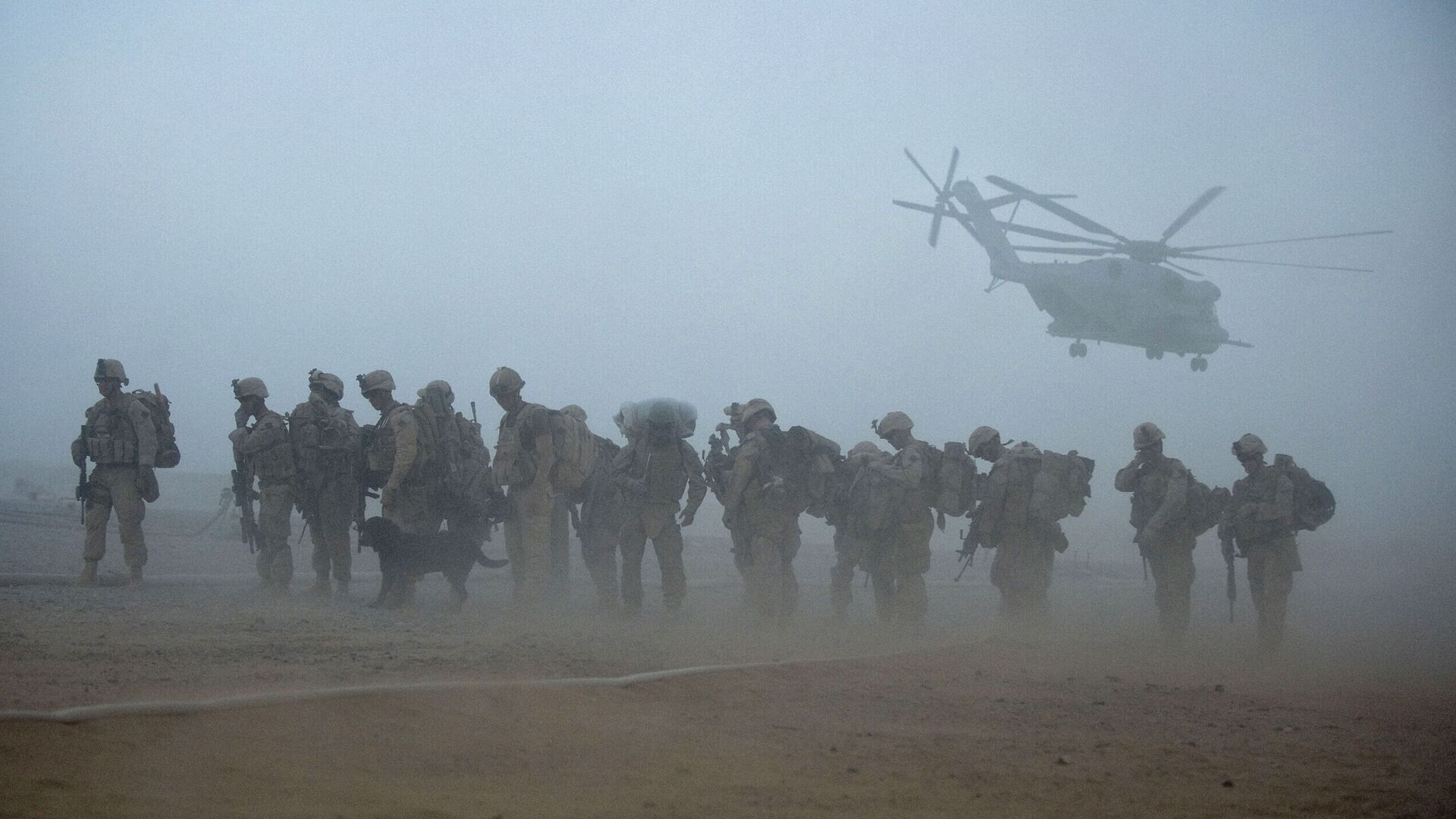'Wait for the Consequences Ahead': Afghan Diplomat Spells Out the Horrors of 20-Year US Occupation

© AFP 2023 / MANPREET ROMANA
Subscribe
The 20-year-long military involvement in Afghanistan cost the US more than $2 trillion, as per Brown University’s Cost of War Project. As of April this year, 2,448 US troops had lost their lives fighting in the country. Another suicide bombing on 26 August, claimed by Daesh-Khorasan*, left 13 more US service members dead.
Senior Afghan diplomat M. Ashraf Haidari, currently Kabul’s ambassador to Sri Lanka, on Wednesday recounted that the 20-year US occupation of Afghanistan had resulted in the deaths of nearly 250,000 civilians and created 3.5 million refugees, among other costs of the war for his country.
For the record, Afghanistan after 20 years:
— Ambassador M. Ashraf Haidari (@MAshrafHaidari) August 31, 2021
- 0.25 million Afghans killed
- 1 million Afghans wounded
- 5 million internally displaced
- 3.5 million refugees
- 20 million in need of urgent aid
- State collapse
- Economic collapse
Wait for the consequences in months ahead!
The observations by Haidari came hours after the last American troops left Afghanistan, more than a fortnight after the Taliban overran the capital Kabul on 15 August.
In an earlier interview with Sputnik, Haidari accused the Taliban of destroying 260 public institutions and looting everything from them, before setting them on fire.
“They have displaced about 4,000 public servants and left about 50,000 others jobless and terrified”, he said last month.
Haidari also said that the disruptions in public services since May this year, when the Taliban began its countrywide offensive against Afghanistan's elected government, have affected more than 13 million Afghans.
The Taliban’s takeover of the Central Asian nation, which has often been described as the "graveyard of empires", has led to criticism about the overall purpose of America’s two-decade military involvement in the region. Soon after invading Afghanistan to hunt down Al-Qaeda's* leadership believed to be behind the 9/11 terror attacks, US-led coalition forces ousted the Taliban from power.
20 years down the line, the Islamist outfit is firmly back in control of the country. The "Doha Peace Deal" of February 2020, which set the stage for the withdrawal of US and allied troops from the nation, states that the Islamist outfit won’t allow Afghan soil to be used by Al-Qaeda or any other terror outfit threatening the security of the US or its allies.
Yet, one of 9/11 masterminds and former Al-Qaeda chief Osama bin Laden’s close associate allegedly made his way back to Afghanistan this week, as the American troops were winding up the withdrawal process.
Video of Al Qaeda’s Amin Ul Haq, Osama Bin Laden’s Fmr Security Chief, gets a warm welcome back in his native Nangarhar province #Afghanistan after it fell to Taliban.
— Joyce Karam (@Joyce_Karam) August 30, 2021
Taliban never officially broken ties with Al Qaeda: pic.twitter.com/KP7qHIezmg
The social media video of Amin-ul-Haq returning to Afghanistan surfaced just days after the Taliban’s chief spokesperson Zabihullah Mujahid claimed that there was “no proof” that bin Laden had been involved in the 9/11 terror attacks.
“When Osama bin Laden became an issue for the Americans, he was in Afghanistan. Although there was no proof he was involved in 9/11... Now, we have given promises that Afghan soil won’t be used against anyone”, the Taliban official was quoted as saying by US broadcaster NBC News.
The US military withdrawal under President Joe Biden has been termed as “disastrous” by ex-President Donald Trump, who argued that the US should have ensured the safe evacuation of its citizens as well as allied Afghans before vacating its military bases.
Secretary of State Antony Blinken has meanwhile said that the US will continue to coordinate with the Taliban on evacuating the remaining US nationals as well as Afghans wanting to flee the country.
We will hold the Taliban to their commitment on freedom of movement for foreign nationals, visa holders, and at-risk Afghans. The international chorus on this is strong, and it will stay strong.
— Secretary Antony Blinken (@SecBlinken) August 31, 2021
*The Taliban, Daesh-K, and Al-Qaeda are terrorist groups banned in Russia and many other countries.


